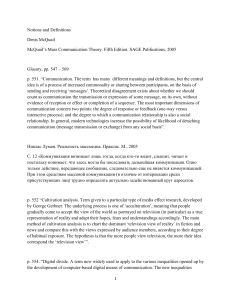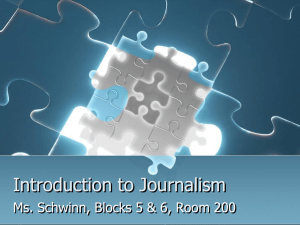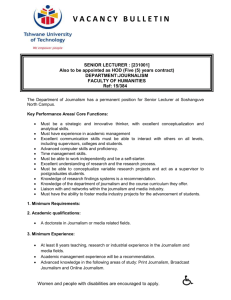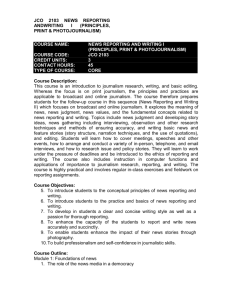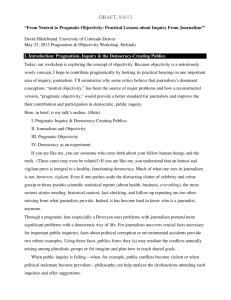An unlovable press - conversations with Michael Schudson
advertisement
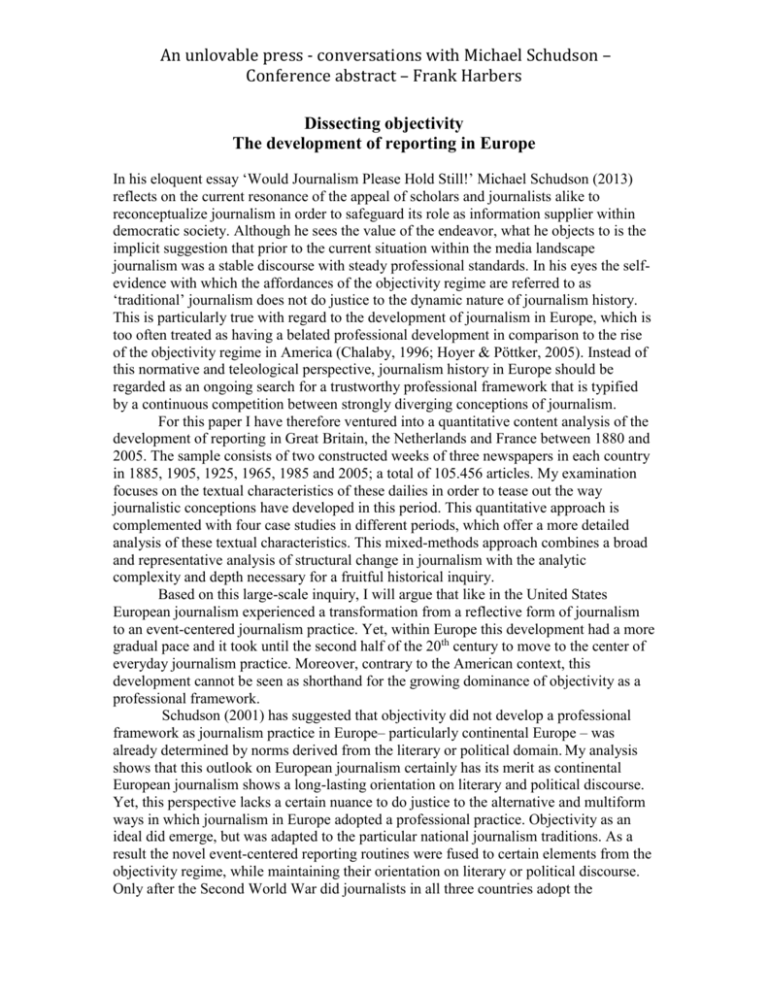
An unlovable press - conversations with Michael Schudson – Conference abstract – Frank Harbers Dissecting objectivity The development of reporting in Europe In his eloquent essay ‘Would Journalism Please Hold Still!’ Michael Schudson (2013) reflects on the current resonance of the appeal of scholars and journalists alike to reconceptualize journalism in order to safeguard its role as information supplier within democratic society. Although he sees the value of the endeavor, what he objects to is the implicit suggestion that prior to the current situation within the media landscape journalism was a stable discourse with steady professional standards. In his eyes the selfevidence with which the affordances of the objectivity regime are referred to as ‘traditional’ journalism does not do justice to the dynamic nature of journalism history. This is particularly true with regard to the development of journalism in Europe, which is too often treated as having a belated professional development in comparison to the rise of the objectivity regime in America (Chalaby, 1996; Hoyer & Pöttker, 2005). Instead of this normative and teleological perspective, journalism history in Europe should be regarded as an ongoing search for a trustworthy professional framework that is typified by a continuous competition between strongly diverging conceptions of journalism. For this paper I have therefore ventured into a quantitative content analysis of the development of reporting in Great Britain, the Netherlands and France between 1880 and 2005. The sample consists of two constructed weeks of three newspapers in each country in 1885, 1905, 1925, 1965, 1985 and 2005; a total of 105.456 articles. My examination focuses on the textual characteristics of these dailies in order to tease out the way journalistic conceptions have developed in this period. This quantitative approach is complemented with four case studies in different periods, which offer a more detailed analysis of these textual characteristics. This mixed-methods approach combines a broad and representative analysis of structural change in journalism with the analytic complexity and depth necessary for a fruitful historical inquiry. Based on this large-scale inquiry, I will argue that like in the United States European journalism experienced a transformation from a reflective form of journalism to an event-centered journalism practice. Yet, within Europe this development had a more gradual pace and it took until the second half of the 20th century to move to the center of everyday journalism practice. Moreover, contrary to the American context, this development cannot be seen as shorthand for the growing dominance of objectivity as a professional framework. Schudson (2001) has suggested that objectivity did not develop a professional framework as journalism practice in Europe– particularly continental Europe – was already determined by norms derived from the literary or political domain. My analysis shows that this outlook on European journalism certainly has its merit as continental European journalism shows a long-lasting orientation on literary and political discourse. Yet, this perspective lacks a certain nuance to do justice to the alternative and multiform ways in which journalism in Europe adopted a professional practice. Objectivity as an ideal did emerge, but was adapted to the particular national journalism traditions. As a result the novel event-centered reporting routines were fused to certain elements from the objectivity regime, while maintaining their orientation on literary or political discourse. Only after the Second World War did journalists in all three countries adopt the An unlovable press - conversations with Michael Schudson – Conference abstract – Frank Harbers objectivity regime in its entirety and did it grow into the dominant professional framework in all these countries.



